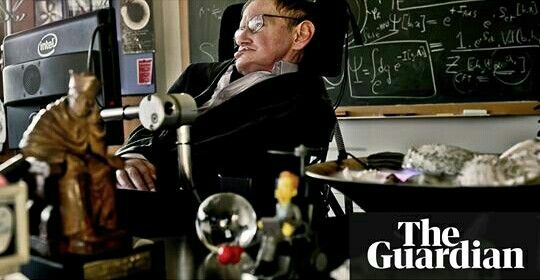
Tributes poured in on Wednesday to Stephen Hawking, the brightest star in the firmament of science, whose insights shaped modern cosmology and inspired global audiences in the millions. He died at the age of 76 in the early hours of Wednesday morning.
A brief history of A Brief History of Time by Stephen Hawking
Read more
In a statement that confirmed his death at home in Cambridge, Hawking’s children said: “We are deeply saddened that our beloved father passed away today. He was a great scientist and an extraordinary man whose work and legacy will live on for many years. His courage and persistence with his brilliance and humour inspired people across the world.
“He once said: ‘It would not be much of a universe if it wasn’t home to the people you love.’ We will miss him for ever.”
For fellow scientists and loved ones, it was Hawking’s intuition and wicked sense of humour that marked him out as much as the fierce intellect that, coupled with his illness, came to symbolise the unbounded possibilities of the human mind.
Sign up for Lab Notes - the Guardian's weekly science update
Read more
“Stephen was far from being the archetypal unworldy or nerdish scientist. His personality remained amazingly unwarped by his frustrations,” said Lord Rees, the astronomer royal, who praised Hawking’s half century of work as an “inspiring crescendo of achievement.” He added: “Few, if any, of Einstein’s successors have done more to deepen our insights into gravity, space and time.”
The Canadian astronaut Chris Hadfield lamented on Twitter that “Genius is so fine and rare”, while Theresa May noted Hawking’s “courage, humour and determination to get the most from life was an inspiration.” The US rock band Foo Fighters was more succinct, calling Hawking a “fucking legend.”
I’m not afraid of death, but I’m in no hurry to die. I have so much I want to do first
Stephen Hawking
Hawking was driven to Wagner, but not the bottle, when he was diagnosed with motor neurone disease in 1963 at the age of 21. Doctors expected him to live for only two more years. But Hawking had a form of the disease that progressed more slowly than usual. He survived for more than half a century.
Hawking once estimated he worked only 1,000 hours during his three undergraduate years at Oxford. In his finals, he came borderline between a first- and second-class degree. Convinced that he was seen as a difficult student, he told his viva examiners that if they gave him a first he would move to Cambridge to pursue his PhD. Award a second and he threatened to stay. They opted for a first.
Those who live in the shadow of death are often those who live most. For Hawking, the early diagnosis of his terminal disease, and witnessing the death from leukaemia of a boy he knew in hospital, ignited a fresh sense of purpose. “Although there was a cloud hanging over my future, I found, to my surprise, that I was enjoying life in the present more than before. I began to make progress with my research,” he once said. Embarking on his career in earnest, he declared: “My goal is simple. It is a complete understanding of the universe, why it is as it is and why it exists at all.”
He began to use crutches in the 1960s, but long fought the use of a wheelchair. When he finally relented, he became notorious for his wild driving along the streets of Cambridge, not to mention the intentional running over of students’ toes and the occasional spin on the dance floor at college parties.
The life of Stephen Hawking – in pictures
Hawking’s first major breakthrough came in 1970, when he and Roger Penrose applied the mathematics of black holes to the universe and showed that a singularity, a region of infinite curvature in spacetime, lay in our distant past: the point from which came the big bang.
Penrose found he was able to talk with Hawking even as the latter’s speech failed. Hawking, he said, had an absolute determination not to let anything get in his way. “He thought he didn’t have long .